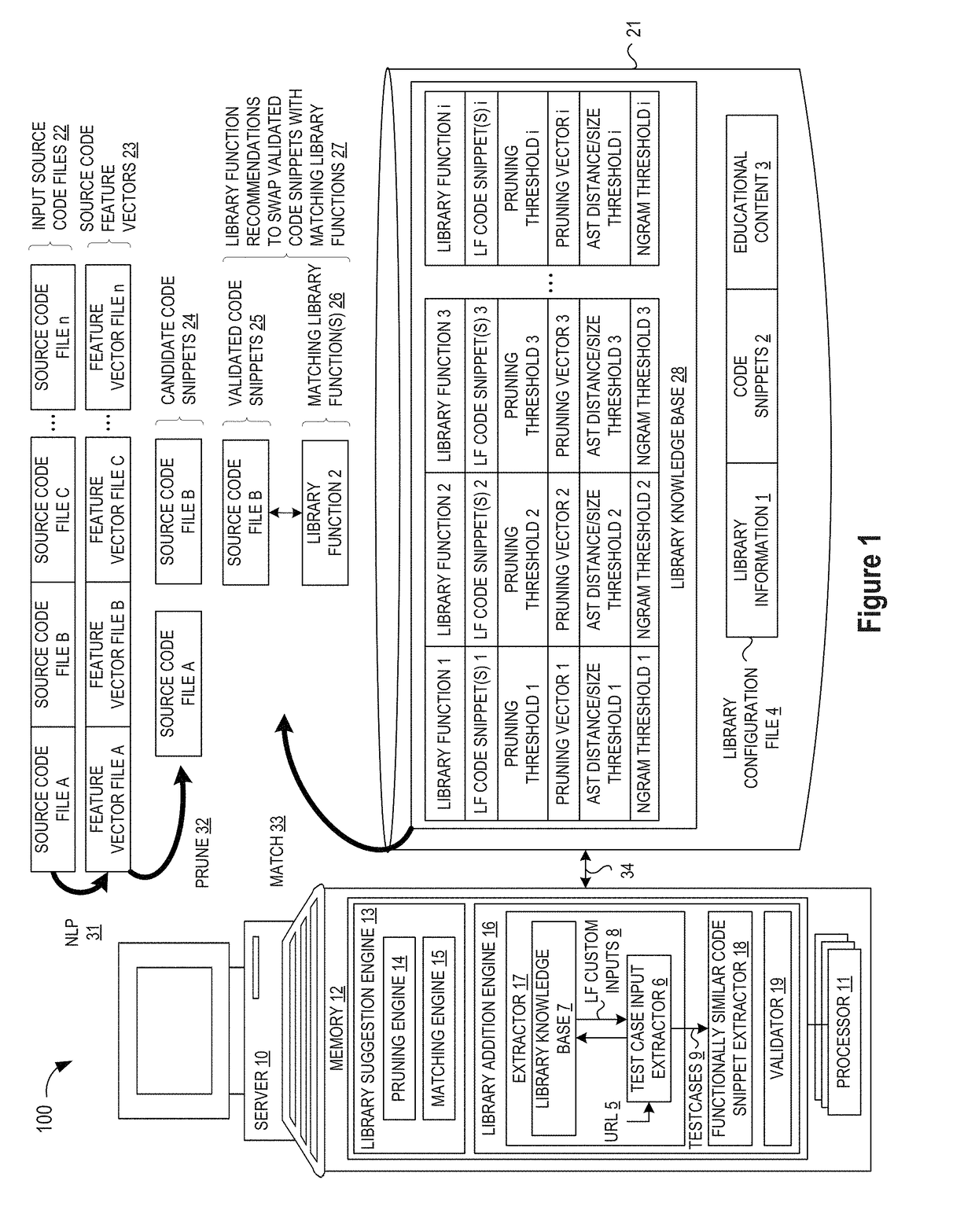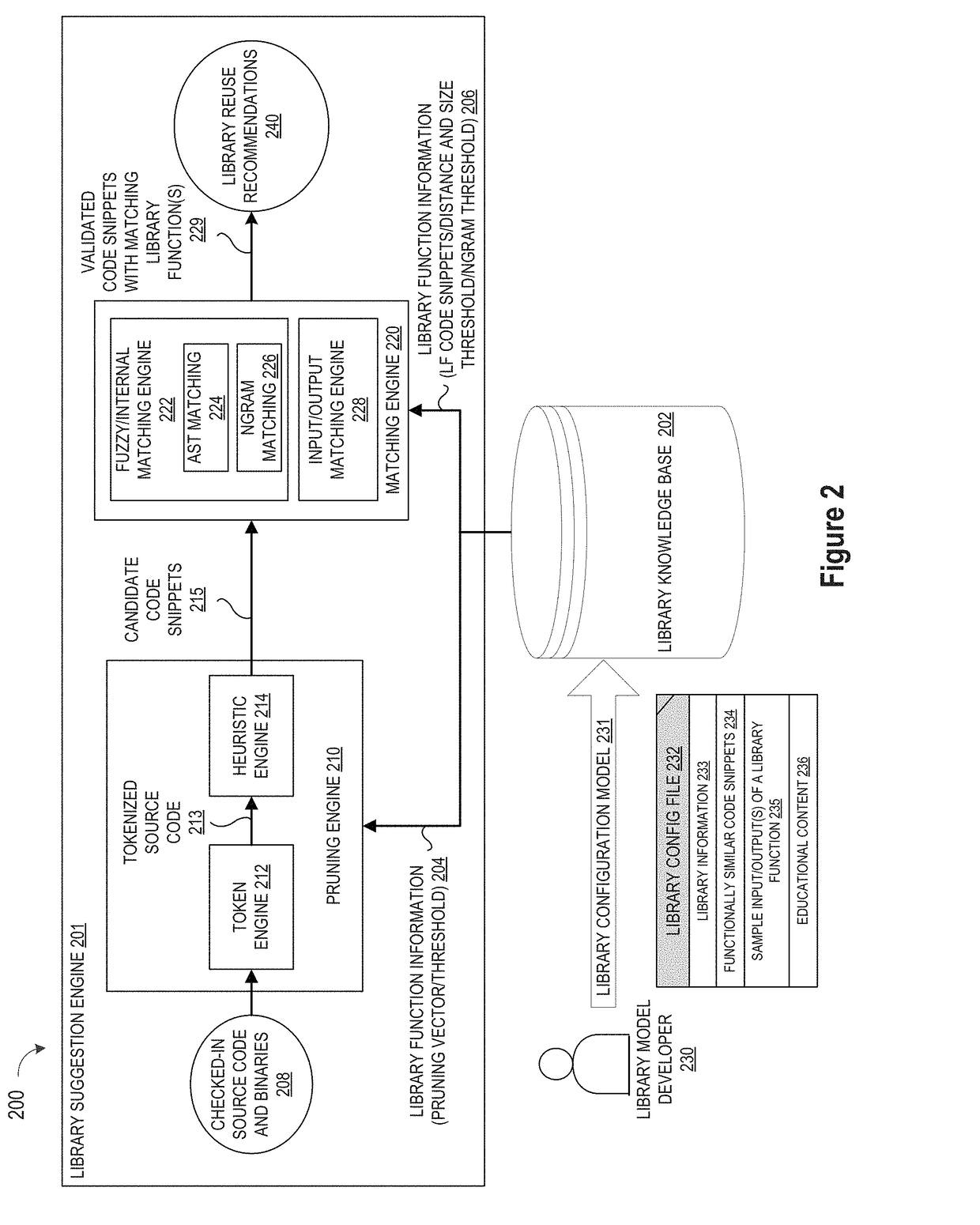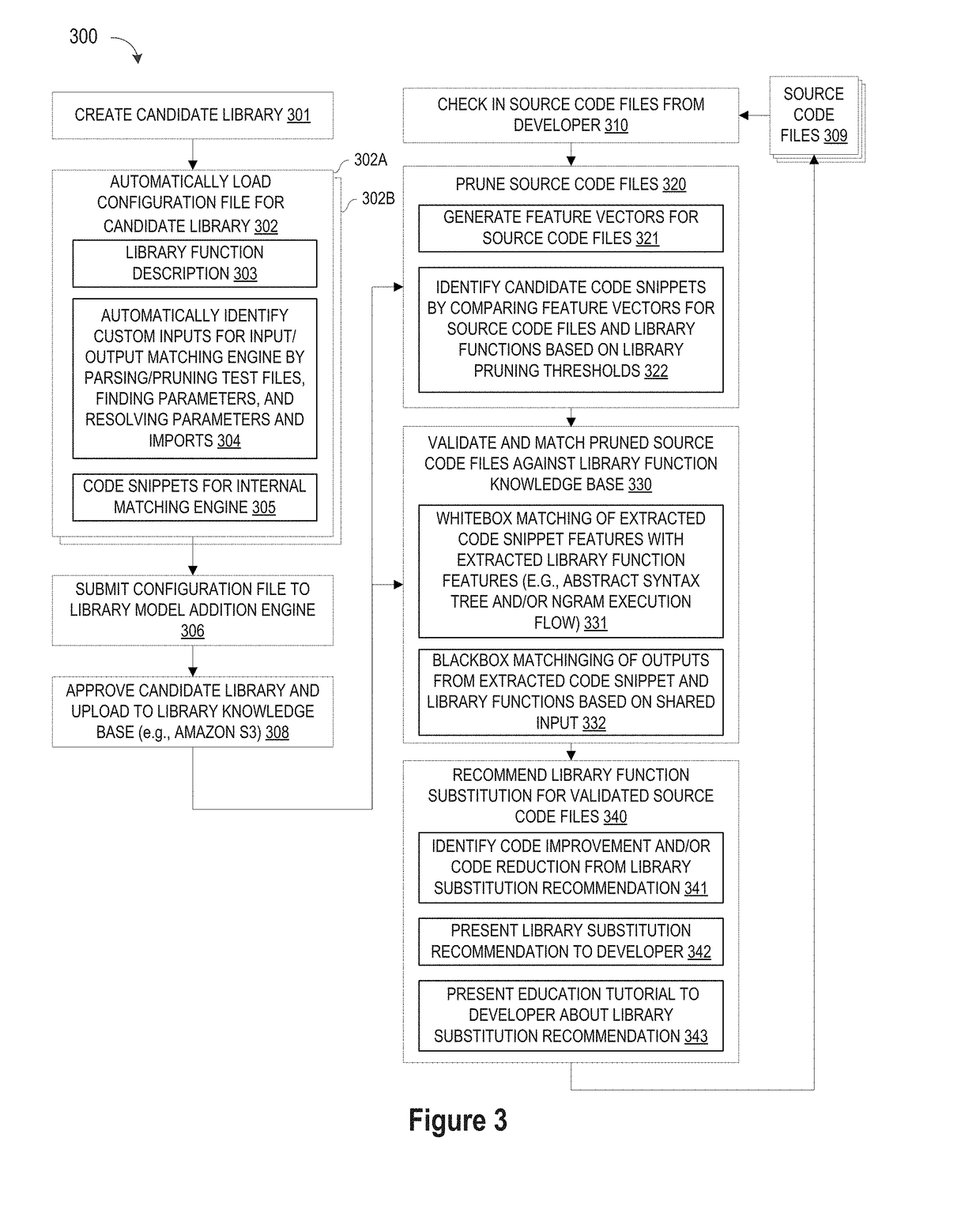Automating Identification of Test Cases for Library Suggestion Models
a library suggestion and test case technology, applied in the field of information processing, can solve the problems of reducing performance functionality, performance limitations and other sub-optimalities, and low quality or robustness, and achieve the effect of improving code reuse and improving codebase maintainability
- Summary
- Abstract
- Description
- Claims
- Application Information
AI Technical Summary
Benefits of technology
Problems solved by technology
Method used
Image
Examples
Embodiment Construction
[0017]A library model addition engine, methodology, and apparatus are described for adding a candidate library model to a library knowledge base by generating and validating a library configuration file containing data needed to recognize the library model, including automatically generated test cases that are identified by scraping documentation pages to extract test files which are scraped to extract the test case input parameters. As disclosed herein, the test case input parameters may be extracted by parsing and pruning the test files, finding parameters to the candidate library model which will provide test cases with a diversity, breadth and depth, and resolving the parameters definition along with imports. The resulting test case input parameters can be passed to an input / output matching engine which evaluates open source projects to identify functionally similar code snippets for use with an internal or whitebox matching engine. While various details are set forth in the fol...
PUM
 Login to View More
Login to View More Abstract
Description
Claims
Application Information
 Login to View More
Login to View More - R&D
- Intellectual Property
- Life Sciences
- Materials
- Tech Scout
- Unparalleled Data Quality
- Higher Quality Content
- 60% Fewer Hallucinations
Browse by: Latest US Patents, China's latest patents, Technical Efficacy Thesaurus, Application Domain, Technology Topic, Popular Technical Reports.
© 2025 PatSnap. All rights reserved.Legal|Privacy policy|Modern Slavery Act Transparency Statement|Sitemap|About US| Contact US: help@patsnap.com



